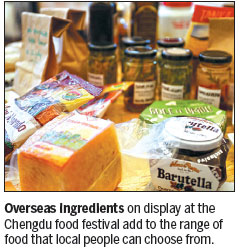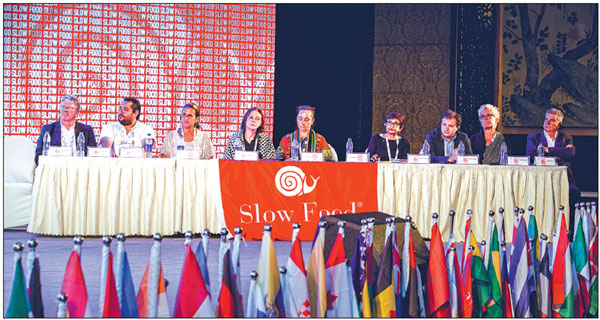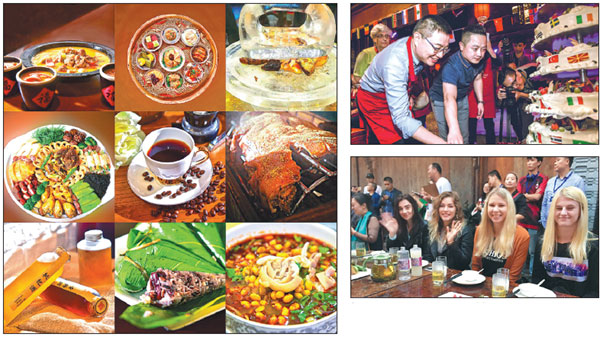Chengdu Slow Food congress, festival promote local cuisine
More than 500 guests from 92 countries and regions recently gathered in Chengdu, capital of Southwest China's Sichuan province, for the Seventh Slow Food International Congress and the 14th Food & Tourism Festival of Chengdu.
The congress, lasting from Sept 29 to Oct 1, is the quadrennial global conference of Slow Food, an international organization founded in 1986 to preserve and promote local cuisine, traditional cooking as an alternative to fast food, and locally oriented farming practices as an alternative to fast food and industrialized mass production of crops.
The organization involves millions of people in more than 160 countries around the world.
Carlo Petrini, founder and president of Slow Food, said at the opening ceremony of the event that he hopes the congress can make a significant contribution to global carbon neutralization.
At the opening ceremony, Chengdu was titled the City of Slow Food, becoming the first in Asia to win the title.
Petrini said some of Chengdu's qualities - such as innovation, elegance, fashion, optimism and friendliness - agree with Slow Food's motto: good, clean, and fair. The organization will continue its cooperation with Chengdu by undertaking a number of projects, such as the Slow Food Village, the Slow Food youth education center and the global chef alliance.

Renowned British food writer Fuchsia Dunlop said China has one of the world's most outstanding food cultures, with incomparable complexity. She said the partnership between Chengdu and Slow Food will pass the culture of Sichuan cuisine to future generations.
At the same time, the food and tourism festival highlighted food experience, brands promotion, sightseeing, and cultural and creative businesses.
The main site of the festival was in Anren township in Dayi county, an area specially designed as a tourist destination representing the sights of the early 20th century and highlighting Sichuan, Shaanxi and Guangdong cuisines, allowing tourists to experience a slow lifestyle.
More than 50 food and culture-themed activities were held during the festival at the main site, as well as many other major tourism areas in the city.
The festival had welcomed more than 3 million tourists from China and overseas by Oct 7, resulting in sales revenue of 96.5 million yuan ($14.7 million).
Chengdu is the first Asian city to win the honor of City of Gastronomy from UNESCO. As a major city opening-up to the countries and regions southwest of China, it was recognized as a national central city last year.
To date, the city has established trade partnerships with 228 countries and regions worldwide, attracting 278 Fortune Global 500 companies to launch operations there. Many Sino-foreign cooperation industrial parks have been built in the city.
Chengdu has nearly 90 international air routes, 16 foreign consulates and 71 friendship cities overseas.
It is the first city in central and western China to launch a 72-hour visa free policy, allowing transit passengers from 51 countries who have valid visas and a flight ticket to a third country to stay in Chengdu for three days.
With the food business at the center, Chengdu's services sector generated revenue of 335.9 billion yuan in the first half of this year, accounting for 55 percent of the city's GDP.
The number is expected to hit 1 trillion yuan in 2020, according to the city's 13th Five-Year Plan (2016-20) for the services industry.
zhangzhao@chinadaily.com.cn
|
Chengdu is recognized as the City of Slow Food during the Seventh International Slow Food Congress, becoming the first city in Asia to win the title.Photos Provided to China Daily |
|
A variety of local and foreign dishes served at the Chengdu Food and Tourism Festival, offering more options for diners from home and abroad. |
(China Daily 10/19/2017 page24)














